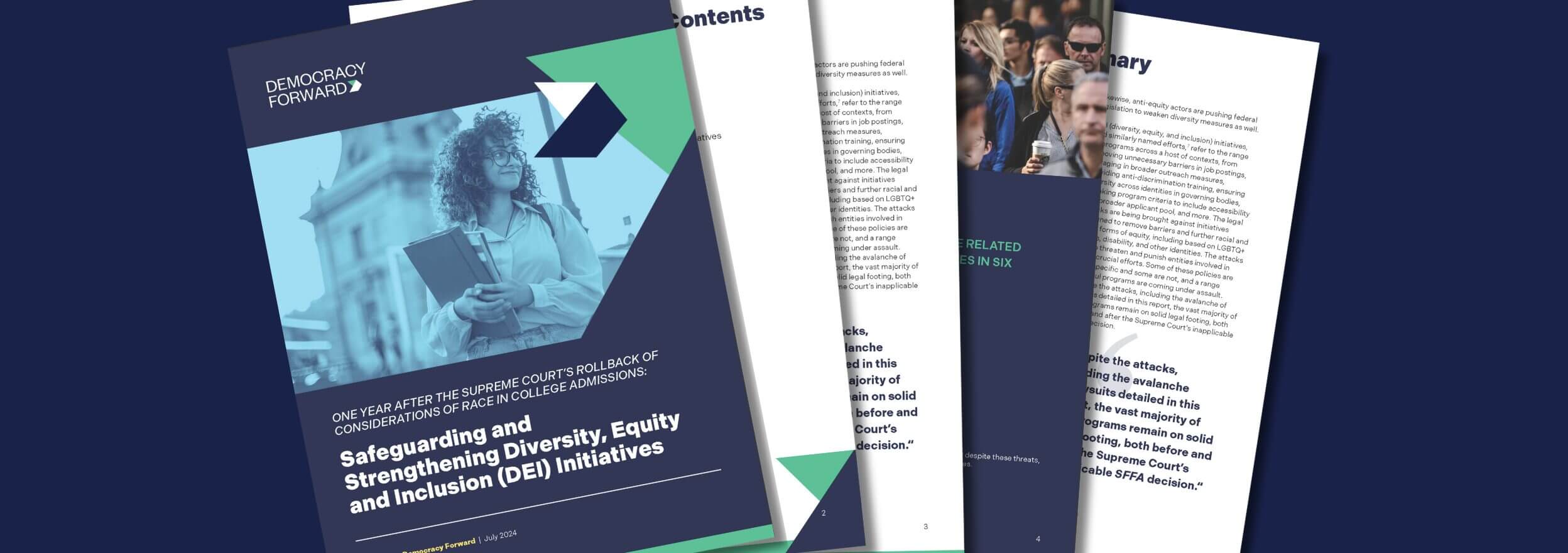Democracy Forward has tracked more than 70 cases and the report provides examples of dozens of these cases filed in the year after the Supreme Court ruled to prohibit the explicit use of race in college admission programs in SFFA. The report finds that, despite attempts by anti-equity organizations to undermine racial equity programs, including through filing an avalanche of lawsuits which the report details, the vast majority of DEI programs challenged remain on solid legal footing.
The report’s key findings include:
- Despite the narrow context of the Court’s ruling in the SFFA cases, there have been significant numbers of threatening letters and court complaints mistakenly citing this opinion to attempt to challenge a range of DEI measures.
- Regardless of the volume of actual and threatened litigation brought by these actors seeking to expand SFFA to broader contexts, courts have often rightly recognized that there is actually not a harmed individual in many of these cases. Instead, these cases are driven by anti-equity organizations seeking to dismantle DEI-related initiatives. Accordingly, many cases are correctly being thrown out on technical grounds.
- Though they have become a preferred scare tactic of anti-equity extremists, threatening letters, including to federal agencies, neither carry the legal weight of charges of discrimination nor have resulted in agencies finding aspirational comments regarding a company’s hopes around more inclusive hiring plans, promotions, or its support of DEI initiatives to be unlawful.
- Some cases that are filed by anti-equity organizations are also being resolved through settlements, including ones that maintain consideration of candidates with lived experiences from a range of racial and other backgrounds, and prioritizing candidates who have, for example, dedicated efforts towards DEI-related missions.
- Courts have also affirmed that anti-discrimination, Equal Employment Opportunity (EEO), and diversity trainings are lawful, and the Equal Employment Opportunity Commission (EEOC) has detailed how such sessions are crucial and support greater compliance with civil rights laws.
- Programs that are race or other identity-specific and also bar other applicants do require careful analysis, as their lawfulness depends on the particular histories of discrimination and circumstances including the facts on the ground surrounding the location, context, and programs.
- Finally, programs with race-neutral criteria that analyze how decisions would affect people of color to ensure that there is less discriminatory impact, do not violate SFFA. In fact, data collection and analysis remain critically important to help remove barriers and ensure greater equality.

